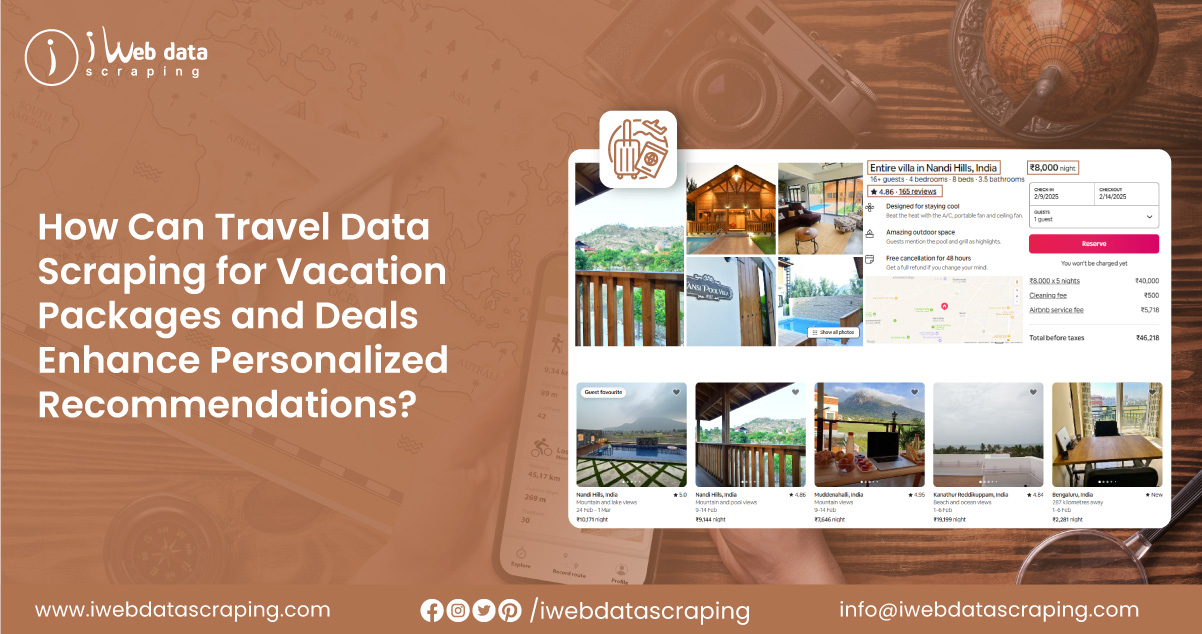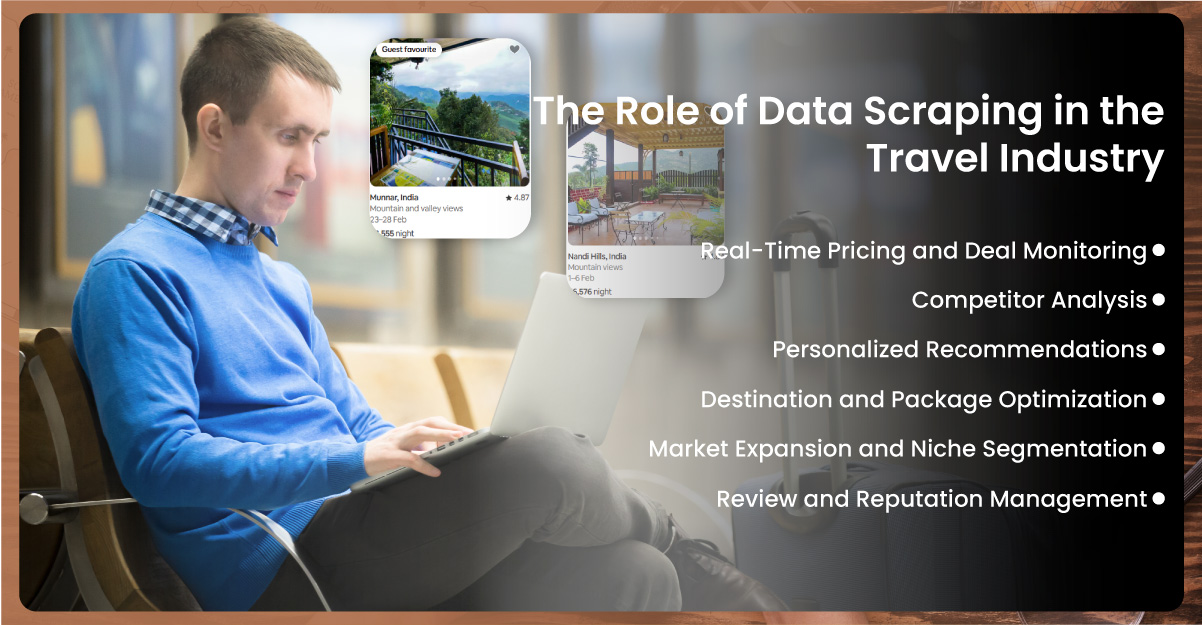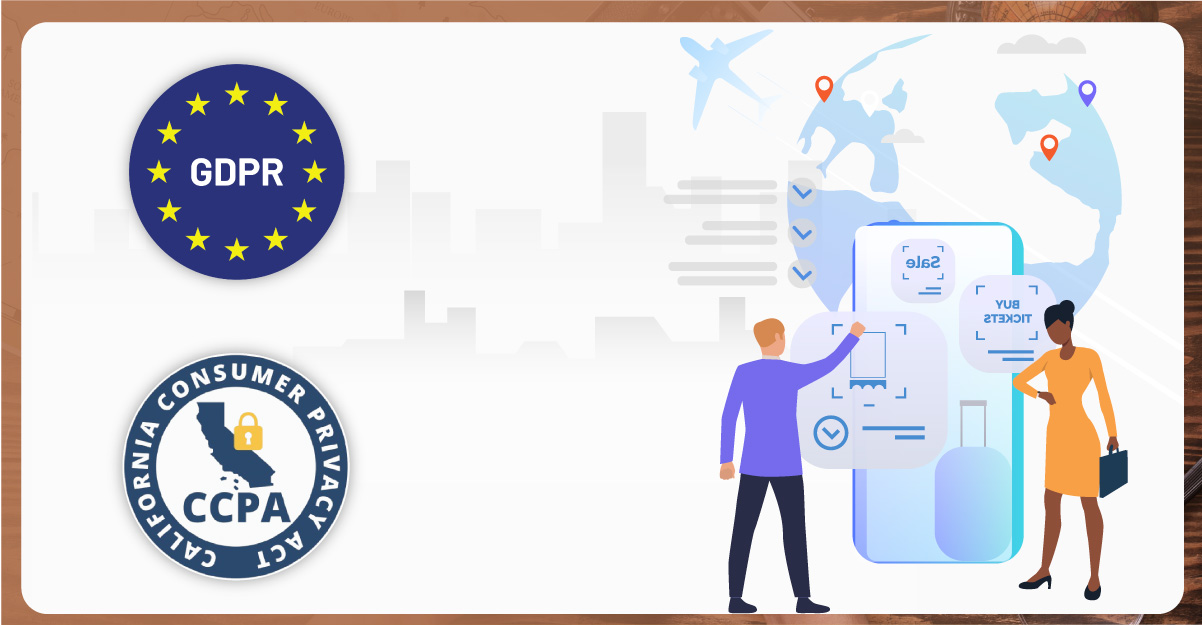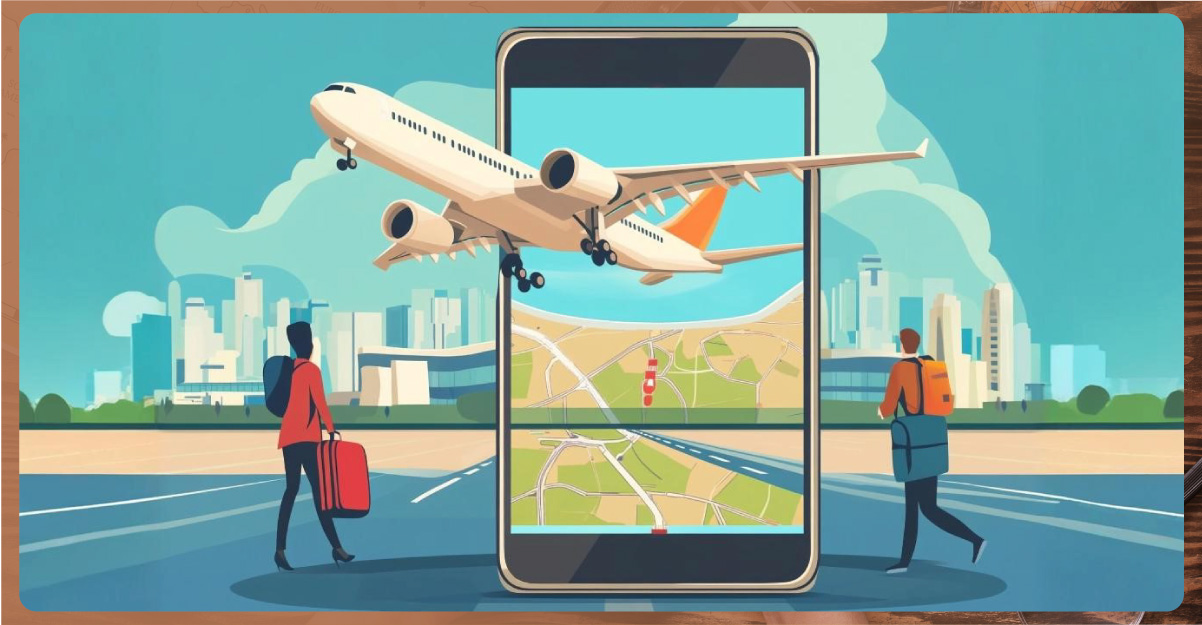

In the digital transformation era, travel has become an increasingly popular industry, with consumers turning to the internet to research, compare, and book vacation packages and travel deals. With the vast amount of information available online, companies in the travel industry are constantly seeking ways to gain an edge over their competitors. One such method is Travel Data Scraping for Vacation Packages and Deals. It allows businesses to extract, analyze, and leverage online travel data, including vacation packages, pricing, reviews, and promotions, to serve their customers better.
Travel Data Scraping for Vacation Packages and Deals collects valuable information from travel websites, online travel agencies (OTAs), and booking platforms. This data can include various elements such as vacation packages, deals, destinations, accommodation options, activities, transportation, and even customer reviews. By collecting and processing this data, businesses in the travel sector can make data-driven decisions, optimize their offerings, and ensure they remain competitive in an ever-evolving market. Web Scraping for Vacation Packages can streamline this process, enabling companies to gather large datasets efficiently. Moreover, businesses can Scrape Travel Deals and Vacation Offers to provide customers with up-to-date, competitive, and attractive travel options.

The global travel industry covers everything from flights and hotels to car rentals, tours, and vacation packages. As travelers increasingly seek the best possible deals and experiences, travel companies must find ways to present competitive options that appeal to their target audiences. This is where Scraping travel websites for vacation offers plays a crucial role.
1. Real-Time Pricing and Deal Monitoring: In the competitive travel market, pricing plays a significant role in the decision-making process for travelers. With countless travel websites offering vacation packages and deals, tracking real-time prices and promotions across multiple platforms can be incredibly time-consuming and challenging. Data Extraction for Vacation Packages helps automate this process by continuously collecting and analyzing price information from various sources. By scraping vacation package prices from multiple travel websites, businesses can monitor real-time fluctuations and identify trends. This allows them to offer competitive pricing, adjust promotions, and respond quickly to market changes. For instance, if a competitor lowers prices or offers a flash sale, travel companies can adjust their pricing strategy to attract more customers.
2. Competitor Analysis: One of the primary advantages of Travel Data Scraping Services is its ability to provide businesses with a comprehensive view of the competitive landscape. By scraping data from travel agency websites, OTAs, and other industry players, businesses can gain insights into their competitors' offerings. This can include vacation packages, special promotions, exclusive deals, and even customer ratings and reviews. By analyzing this information, companies can identify gaps in their offerings and tailor their services to meet the evolving demands of travelers. For example, suppose a competitor offers a discounted vacation package to a popular destination. A travel business may create a similar package or provide added value through complimentary services like airport transfers or guided tours.
3. Personalized Recommendations: As more travelers demand personalized vacation experiences, travel companies use data scraping to understand customer preferences and behavior better. By scraping reviews, feedback, and ratings, businesses can analyze what customers enjoy most about specific vacation packages or destinations. This data can then offer tailored recommendations based on individual preferences. For example, if a traveler frequently books beach vacations with family-friendly amenities, scraping travel data can help identify similar vacation packages or destinations that match these criteria. By leveraging Travel Data Intelligence, businesses can present personalized recommendations that resonate with customers, ultimately increasing conversion rates and customer satisfaction.
4. Destination and Package Optimization: Travel data scraping helps businesses monitor pricing and provides insights into customer preferences regarding destinations, activities, and package features. By analyzing large datasets collected from multiple travel websites, businesses can identify the most popular destinations, the types of vacation packages in demand, and emerging trends within the travel industry. For example, a travel company may scrape data related to beach vacation packages, adventure tours, or cultural trips to understand which types of vacations are most sought after. By optimizing their offerings based on these insights, businesses can create vacation packages that align with current trends, ensuring they meet traveler demands while remaining competitive.
5. Market Expansion and Niche Segmentation: Travel data scraping can help companies expand into new markets or target niche customer segments. By scraping data from various sources, businesses can identify regions or demographics with high demand for specific types of vacations. For example, if a company notices an increasing demand for eco-friendly vacation packages or wellness retreats, it can tailor its marketing efforts to cater to this growing market. Similarly, scraping data on popular destinations can help businesses identify untapped regions with demand for vacation packages but little competition. This insight can guide market entry strategies, helping companies become leaders in emerging travel sectors.
6. Review and Reputation Management: Customer reviews and ratings are critical for the success of any business in the travel industry. Positive reviews can drive bookings, while negative feedback can deter potential customers. Travel data scraping allows businesses to monitor reviews and ratings across multiple platforms, providing insights into customer sentiment. By analyzing this data, travel companies can identify areas for improvement in their vacation packages, customer service, and overall offerings. Furthermore, they can address negative reviews promptly, providing a better customer experience and improving their reputation. For example, suppose travelers frequently complain about long wait times for check-ins at certain hotels. In that case, a travel company can work with the hotel to address this issue, enhancing the overall vacation experience for future customers.

While travel data scraping offers numerous benefits, businesses must consider the legal and ethical implications of web scraping. Many websites have terms of service that prohibit data scraping, and violating these terms can result in legal action or blocking access to the website. Therefore, companies must ensure they scrape data in compliance with the website's terms and use ethical scraping practices.
One of the most important ethical considerations in data scraping is respecting privacy. Travel data scraping should focus on publicly available information, avoiding collecting personal or sensitive data without proper consent. Furthermore, businesses should be transparent about how they use the data they collect, ensuring that it aligns with privacy regulations like GDPR or CCPA.
To avoid potential legal issues, companies should use scraping tools and techniques designed to minimize the impact on the websites they scrape. This includes implementing rate limiting to prevent overloading servers and ensuring that scraping activities do not disrupt the website's functionality.

Data scraping will play an increasingly important role in shaping business strategies as the travel industry evolves. With the rise of artificial intelligence (AI), machine learning, and big data analytics, travel companies can harness even more advanced scraping techniques to gain deeper insights into customer behavior, market trends, and competitive landscapes.
In the future, travel data scraping could enable hyper-personalized vacation planning, where businesses can offer tailored packages based on real-time data, traveler preferences, and past behavior. For example, AI-driven recommendation engines could predict the best vacation options for individual travelers, factoring in their budget, preferred activities, and travel history. Furthermore, integrating travel data scraping with other technologies, such as mobile apps, augmented reality (AR), and virtual reality (VR), could revolutionize how travelers plan and book their vacations. These innovations will make the travel experience more personalized, immersive, and dynamic.
Travel data scraping for vacation packages and deals is a powerful tool that enables businesses to stay competitive in a fast-paced and crowded industry. By gathering valuable insights from multiple sources, travel companies can optimize their pricing, offerings, and marketing strategies to serve their customers better. As the travel industry continues to grow and evolve, data scraping will play an increasingly critical role in shaping the future of travel experiences, helping businesses meet the ever-changing demands of modern travelers. Vacation Package Scraping tools allow companies to gather real-time data on vacation deals and package offerings across platforms. However, businesses must adhere to ethical practices and comply with legal regulations to ensure their data scraping efforts are sustainable and respectful of privacy. Additionally, Travel and Tourism App Datasets provide a wealth of information on trends, customer preferences, and emerging destinations, further enhancing business strategies in the sector.
Experience top-notch web scraping service and mobile app scraping solutions with iWeb Data Scraping. Our skilled team excels in extracting various data sets, including retail store locations and beyond. Connect with us today to learn how our customized services can address your unique project needs, delivering the highest efficiency and dependability for all your data requirements.